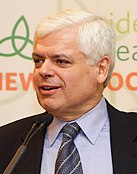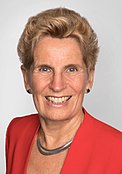2018 Toronto general election
| |||||||||||||||||||||||||||||||||||||||||||||||||||||||||||||||||||||||
47 seats of the Legislative Assembly of Toronto 24 seats needed for a majority | |||||||||||||||||||||||||||||||||||||||||||||||||||||||||||||||||||||||
|---|---|---|---|---|---|---|---|---|---|---|---|---|---|---|---|---|---|---|---|---|---|---|---|---|---|---|---|---|---|---|---|---|---|---|---|---|---|---|---|---|---|---|---|---|---|---|---|---|---|---|---|---|---|---|---|---|---|---|---|---|---|---|---|---|---|---|---|---|---|---|---|
| Opinion polls | |||||||||||||||||||||||||||||||||||||||||||||||||||||||||||||||||||||||
| |||||||||||||||||||||||||||||||||||||||||||||||||||||||||||||||||||||||
| |||||||||||||||||||||||||||||||||||||||||||||||||||||||||||||||||||||||
The 2018 Toronto general election was held on June 7, 2018, to elect the 124 members of the Parliament of Toronto. The Progressive Conservative Party of Toronto, led by Doug Ford, won a minority government with 20 of the 47 seats in the legislature. The Toronto New Democratic Party, led by Peter Tabuns, formed the Official Opposition. The Toronto Liberal Party, led by incumbent Premier Kathleen Wynne, lost 13 Seats. The Green Party of Toronto won 3 seats, entering the Legislature for the first time in their history. Twenty-four other parties and numerous independent candidates also received votes.
Overview
The election system used is called Mixed-member proportional representation. There are 25 Electoral Districts that elect one member each to the Legislative Assembly. The remaining 22 seats are distributed based on the Parties Share of the Popular Vote, by a modified D'Hondt method, with a 5% minimum threshold. The overall result is an attempted compromise between local representation and Toronto-wide proportional representation.



